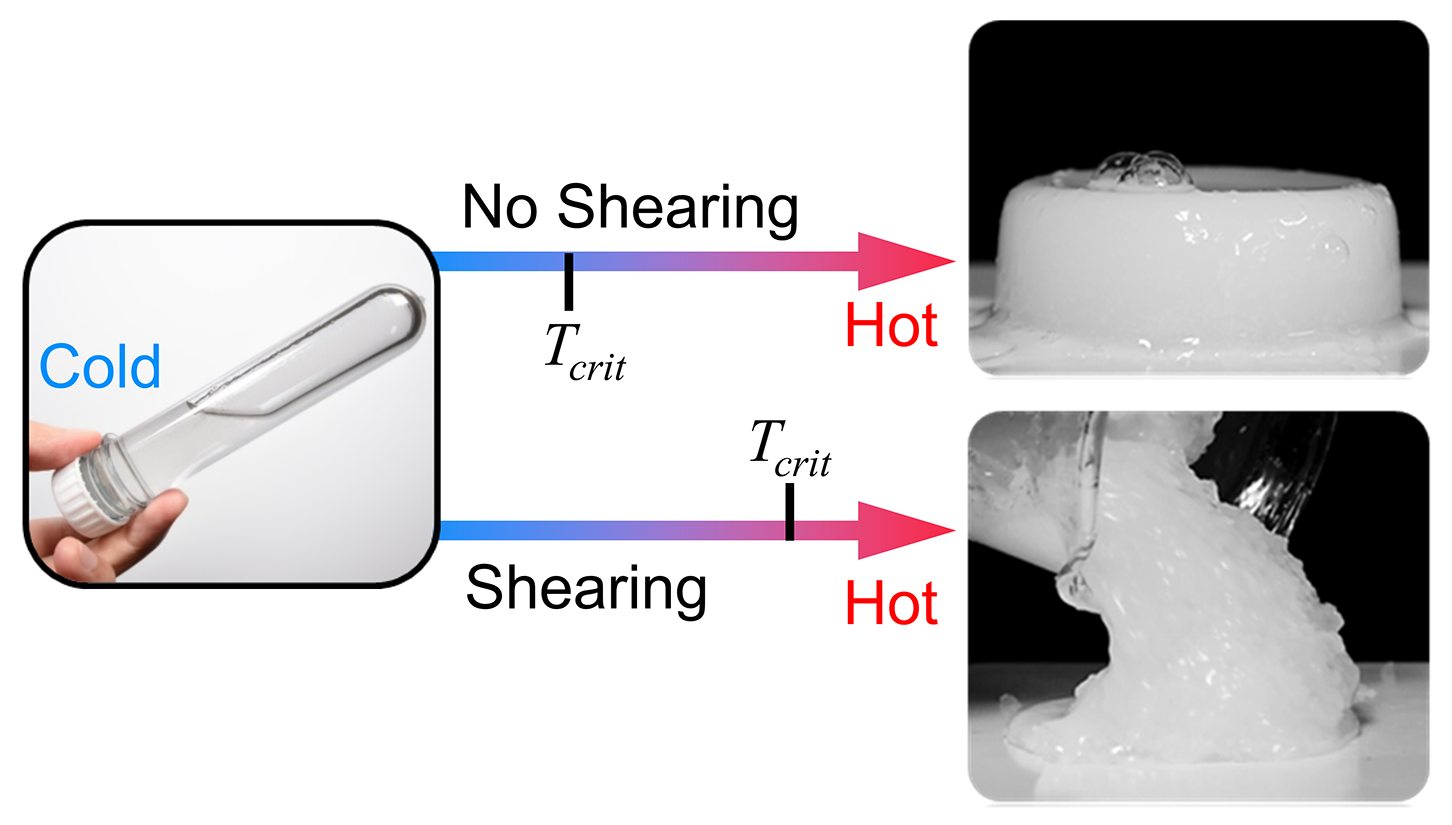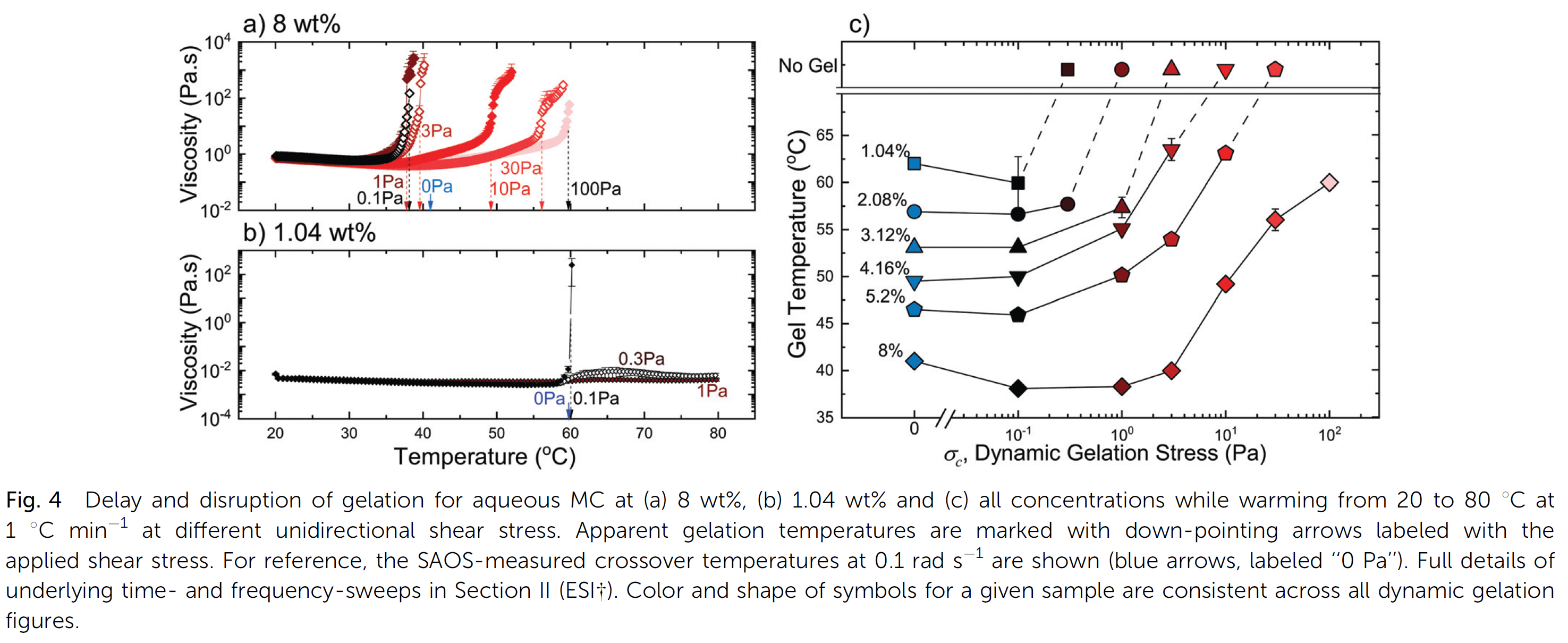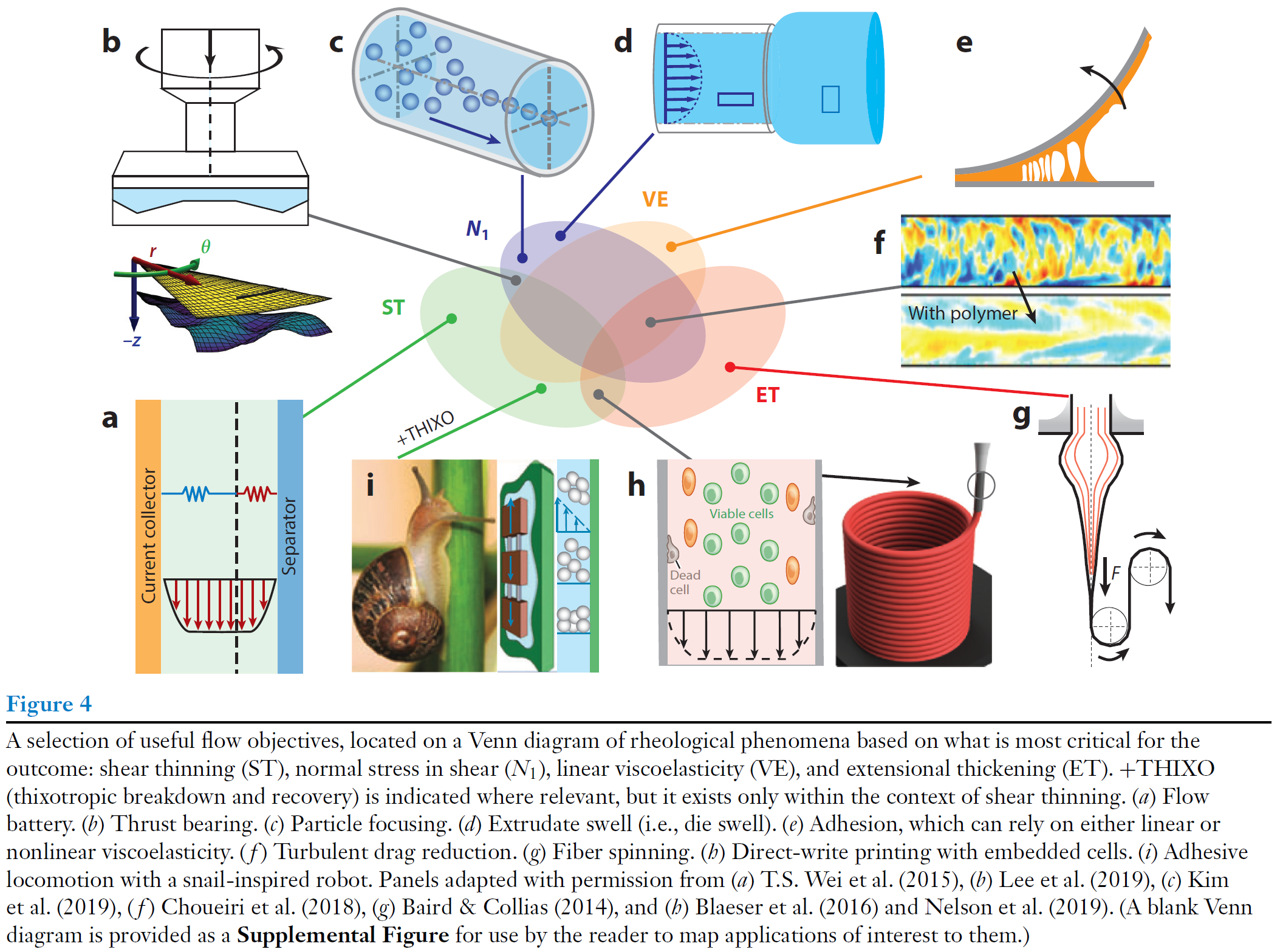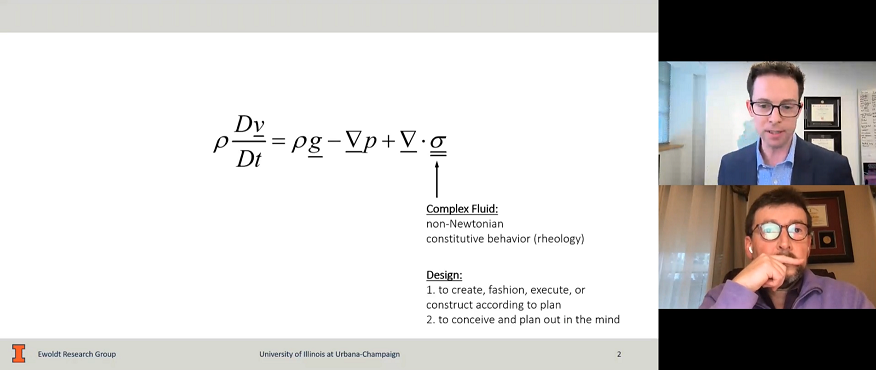Prof. Ewoldt will give a free seminar as part of the Journal of Non-Newtonian Fluid Mechanics Complex Fluids Seminar Series.

Registration is required to receive the Zoom meeting information. By E-mail, send a plain text e-mail message to <mjrdomo (at) math.ubc.ca> with the following content: subscribe fluid-mech-seminar
Other event details below:
Time:
August 5, 2020
11:00 CDT (Chicago time)
(9:00 Vancouver, 12:00 New York, 17:00 London, 18:00 Paris, 00:00 Beijing)
Title: Welcome to the playground of MAOS: medium-amplitude oscillatory shear
Randy H. Ewoldt
University of Illinois at Urbana-Champaign
Abstract:
Join us in the playground of weakly-nonlinear rheometry, specifically medium-amplitude oscillatory shear (MAOS). It is now more accessible than ever: for theory, simulation, and experiment.
This talk reviews the developing paradigm of weakly-nonlinear viscoelastic characterization, with particular emphasis on contributions from our group. Weakly-nonlinear excitations are a fundamental characterization technique used in optics, acoustics, heat transfer, and other physical sciences. Yet, weakly-nonlinear rheometry methods have comparatively lagged. Theoretically anticipated for over 50 years, the first complete measurement of weakly-nonlinear oscillatory shear, including all four measures as a function of frequency, was made in 2013 [1]. We have since developed a new frequency-sweep technique that makes experiments much faster [2], facilitating a significant increase in data available for analysis [3]. The MAOS paradigm can be applied to any rheologically-complex material. Recent efforts have demonstrated the ability to infer material-level physics from this continuum-level rheological flow. These efforts include theoretical and experimental work on transient polymer networks [3, 4], polymer melts [5], soft glassy colloidal suspensions [6], and a collaborative work on capillary suspensions [7] which show anomalous power law scaling.
MAOS is a systematic and rigorous step beyond SAOS and a type of “sweet spot” for rheology: nonlinear enough to provide additional information, but still amenable to theoretical predictions. There is still much to explore in this developing area, which will benefit from more researchers measuring and reporting MAOS signatures of theoretical models, simulations, and experiments.
References:
- Ewoldt RH, Bharadwaj NA (2013) Low-dimensional intrinsic material functions for nonlinear viscoelasticity.Rheologica Acta, 52(3):201–219. https://doi.org/10.1007/s00397-013-0686-6
- Singh PK, Soulages JM, Ewoldt RH (2018) Frequency-sweep medium-amplitude oscillatory shear (MAOS).Journal of Rheology, 62(1):277–293. https://doi.org/10.1122/1.4999795
- Martinetti L, Carey-De La Torre O, Schweizer KS, Ewoldt RH (2018) Inferring the Nonlinear Mechanisms of a Reversible Network.Macromolecules, 51(21):8772–8789. https://doi.org/10.1021/acs.macromol.8b01295
- Martinetti L, Soulages JM, Ewoldt RH (2018) Continuous relaxation spectra for constitutive models in medium-amplitude oscillatory shear.Journal of Rheology, 62(5):1271–1298. https://doi.org/10.1122/1.5025080
- Martinetti L, Ewoldt RH (2019) Time-strain separability in medium-amplitude oscillatory shear.Physics of Fluids, 31(2):1–43. https://doi.org/10.1063/1.5085025
- Blackwell BC, Ewoldt RH (2016) Non-integer asymptotic scaling of a thixotropic-viscoelastic model in large-amplitude oscillatory shear.Journal of Non-Newtonian Fluid Mechanics, 227:80–89. https://doi.org/10.1016/j.jnnfm.2015.11.009
- Natalia I, Ewoldt RH, Koos E (2020) Questioning a fundamental assumption of rheology: Observation of noninteger power expansions.Journal of Rheology, 64(3):625–635. https://doi.org/10.1122/1.5130707





